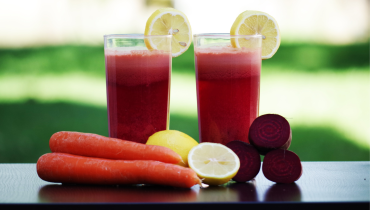Are non-stick aluminum pans toxic? This is a question that has been floating around in the culinary world for quite some time. We all love the convenience of cooking with non-stick pans, but are they safe to use? In this blog post, we will delve into the truth behind non-stick aluminum pans and uncover whether or not they pose any risks to our health. So grab your spatula and join us as we explore the fascinating world of cookware safety!
What are non-stick aluminum pans?
Non-stick aluminum pans have become a staple in many kitchens due to their convenience and ease of use. These pans are typically made with a base of aluminum, which is known for its excellent heat conductivity. The non-stick coating on these pans is usually made from polytetrafluoroethylene (PTFE), commonly known as Teflon.
The non-stick coating allows for easy food release, making cooking and cleaning up a breeze. It also means that you can cook with less oil or butter, which can be beneficial for those watching their fat intake. Plus, the even heat distribution of aluminum ensures that your food cooks evenly without any hot spots.
However, there has been some concern about the safety of non-stick aluminum pans. When heated to high temperatures (above 500°F/260°C), the PTFE coating can release toxic fumes, potentially causing flu-like symptoms in humans and even death in birds.
To address this issue, manufacturers now produce “PFOA-free” non-stick pans. PFOA (perfluorooctanoic acid) was previously used in the production process of PTFE but has since been phased out due to environmental concerns.
It’s important to note that when used correctly and at moderate temperatures, non-stick aluminum pans are generally safe to use. However, if you frequently cook at very high temperatures or notice signs of wear on your pan’s coating such as peeling or scratching, it may be time to consider replacing it.
In the next section, we will explore whether these popular kitchen tools pose any health risks and how we can use them safely in our everyday cooking adventures!

Are they toxic?
Are non-stick aluminum pans toxic? This is a question that has sparked much debate in recent years. While there are certainly concerns about the potential health risks associated with using these types of pans, it’s important to understand the facts before jumping to conclusions.
Let’s talk about what non-stick aluminum pans actually are. These pans have a coating on the surface that prevents food from sticking and makes for easy cleaning. The coating is typically made from a synthetic polymer called polytetrafluoroethylene (PTFE), commonly known as Teflon.
The concern arises from the fact that when heated to high temperatures, Teflon can release toxic fumes called perfluorinated compounds (PFCs). These fumes have been linked to various health issues, including respiratory problems and even cancer.
However, it’s worth noting that non-stick aluminum pans only pose a risk if they are overheated or damaged. When used properly at moderate temperatures, they are generally considered safe. It’s essential to follow the manufacturer’s instructions carefully and avoid using metal utensils which can scratch the surface.
If you’re still concerned about potential toxicity, there are alternatives available such as ceramic-coated or stainless steel pans. These options do not contain PTFE and are generally regarded as safer choices for cooking.
While non-stick aluminum pans may have some potential risks associated with them if misused or overheated, proper use and care can minimize these concerns. If you prefer to err on the side of caution, exploring alternative cookware options might be advisable. Remember always to prioritize your safety in the kitchen!
How to use them safely
How to Use Non-Stick Aluminum Pans Safely
When it comes to using non-stick aluminum pans, safety should always be a top priority. Here are some tips to ensure that you can enjoy the convenience of these pans without any potential health risks.
1. Avoid high heat: Non-stick coatings can release toxic fumes when exposed to high temperatures. It is recommended to cook on low or medium heat settings when using these pans.
2. Use wooden or silicone utensils: Metal utensils can scratch the non-stick surface and cause it to chip off into your food. Opt for wooden or silicone utensils instead, which are gentle on the coating.
3. Hand wash only: While non-stick aluminum pans may claim to be dishwasher safe, hand washing is still the best method for preserving their integrity. Avoid harsh scrub brushes or abrasive cleaners that could damage the coating.
4. Replace worn-out pans: Over time, the non-stick coating on aluminum pans can wear off and become less effective. If you notice scratches or peeling in your pan’s surface, it’s time for a replacement.
5. Ventilate your kitchen: When cooking with non-stick aluminum pans, make sure your kitchen is well-ventilated by turning on the exhaust fan or opening windows and doors. This helps in minimizing exposure to any potential harmful fumes.
By following these guidelines, you can safely use non-stick aluminum pans without compromising your health or sacrificing convenience in the kitchen
Some safe alternatives to non-stick aluminum pans
If you’re concerned about the potential toxic effects of non-stick aluminum pans, there are plenty of safe alternatives available that can still provide excellent cooking performance. Here are a few options to consider:
1. Stainless Steel: One of the most popular alternatives to non-stick aluminum pans is stainless steel. Known for its durability and even heat distribution, stainless steel pans offer a non-reactive surface that won’t leach any harmful chemicals into your food.
2. Cast Iron: Another great alternative is cast iron cookware. This type of pan has been used for centuries and is known for its incredible heat retention and natural non-stick properties when properly seasoned.
3. Ceramic Cookware: Ceramic-coated pans have gained popularity in recent years due to their non-toxic nature and ease of cleaning. The ceramic coating provides a smooth, non-stick surface without the need for potentially harmful chemical coatings.
4. Glass Bakeware: When it comes to baking, glass bakeware is an excellent choice. It’s free from any coatings or metals that could potentially leach into your food, making it a safe option for all types of dishes.
5. Natural Non-Stick Options: For those who still prefer a non-stick surface, there are natural alternatives available such as silicone baking mats or parchment paper which can be used as liners in the oven or on stovetops.
By choosing one or more of these safe alternatives, you can enjoy worry-free cooking while minimizing exposure to potentially harmful substances found in traditional non-stick aluminum pans.
Conclusion
After examining the potential toxicity of non-stick aluminum pans, it is clear that there are some concerns to be aware of. While these pans may provide convenience in the kitchen, they can release harmful chemicals when overheated or scratched.
To use non-stick aluminum pans safely, it is important to follow a few guidelines. Avoid using high heat settings and never preheat an empty pan. Be careful not to scratch the surface with sharp utensils or abrasive scrubbers. Additionally, consider replacing your non-stick aluminum pans periodically to ensure they remain in good condition.
If you’re looking for safer alternatives to non-stick aluminum pans, there are several options available. Stainless steel cookware offers durability and even heating without the need for a non-stick coating. Cast iron pans provide excellent heat retention and can develop natural non-stick properties over time when properly seasoned.
While non-stick aluminum pans may offer convenience in the kitchen, it’s important to exercise caution when using them due to potential health risks associated with overheating and scratching. By following safe handling practices and considering alternative cookware options, you can minimize your exposure to potentially toxic substances while still enjoying delicious meals.


